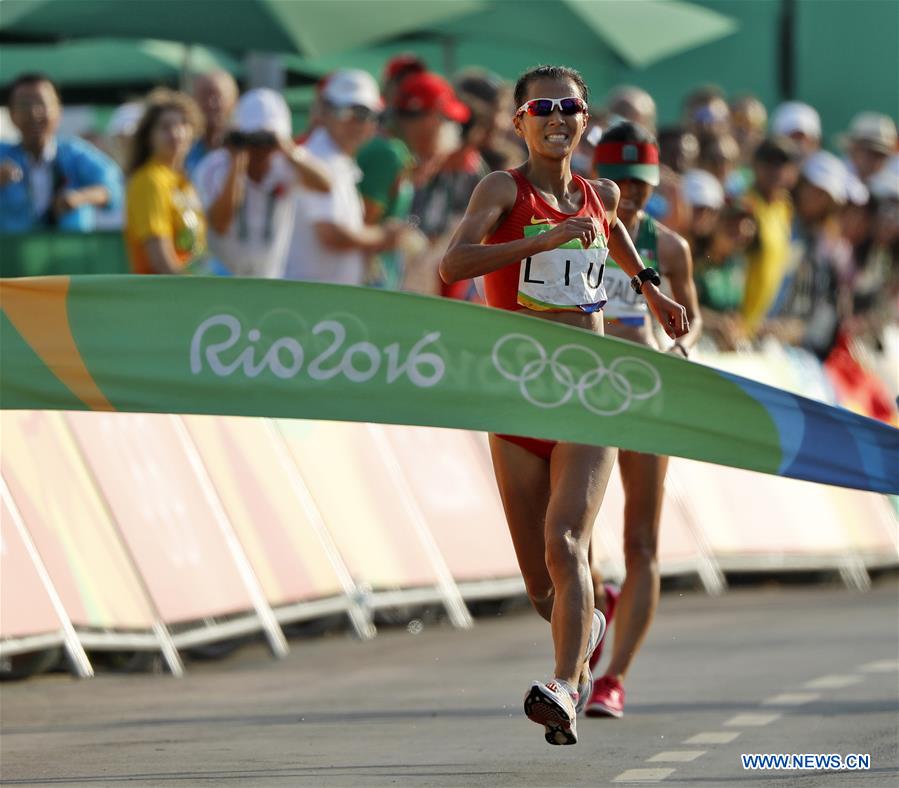IOC wants cooler marathons in Tokyo 2020
 0 Comment(s)
0 Comment(s) Print
Print E-mail China Daily, October 18, 2019
E-mail China Daily, October 18, 2019

Amid concern about the expected searing heat in Tokyo, the International Olympic Committee wants to move the marathons at the 2020 Games 500 miles north to find cooler and safer race conditions.
The IOC detailed a new plan on Wednesday to stage the marathons and race walking events in Sapporo, host city of the 1972 Winter Olympics, which "will mean significantly lower temperatures for the athletes".
The proposal comes weeks after marathons were run around midnight in heat of 38 Celsius (100 Fahrenheit) at the World Athletics Championships in Doha, Qatar.
Temperatures in Sapporo are "five to six degrees centigrade cooler during the day than in Tokyo," the IOC said.
"The Olympic Games are the platform where athletes can give once-in-a-lifetime performances, and these measures ensure they have the conditions to give their best," IOC president Thomas Bach said in a statement.
Still, one likely Olympic medal contender affected by the plan questioned if athletes had been consulted.
Canada's Evan Dunfee, who won bronze in the 50km walk at the Doha worlds, wrote in a Twitter post tagged to the IOC: "I'm assuming this means you'll be paying for my family and friends' flights and accommodations who have already booked for Tokyo?"
The 29-year-old added: "This breaks my heart and is poised to ruin my Olympic experience. Was there ANY consultation with athletes over this?"
An Olympic panel has been consulting with sports governing bodies while assessing heat and weather issues for the July 24-Aug. 9 Tokyo Games.
"The IOC working group identified the marathon and race walk as the events that would put particular heat stress on the athletes," it said.
The marathons were already due to start at 6 am in Tokyo to ease the heat effect on runners.
The men's 50km race walk final was slated for a 5:30 am start.
The IOC said it informed the IAAF, athletics' global governing body, that it will also consult Olympic teams and broadcasters.
"Giving athletes the best platform for their performances within the environment they are in is central to all major events," IAAF president Sebastian Coe said in the IOC statement.
In Doha, 28 of 68 starters failed to finish the women's marathon, while 18 of 73 men failed to complete the course.
Ethiopian distance-running great Haile Gebrselassie said athletes "could have died" in the women's race.
An Olympic panel overseeing preparations will discuss heat measures at its Oct 30-Nov 1 meeting in Tokyo.
"These include better shade, water sprays, better access to water supplies and an initiative to help the athletes in their preparations," the IOC said.
The plan driven by increasing summer heat cuts into a key promise of Tokyo's bidding, first for the 2016 Olympics won by Rio de Janeiro and then its successful 2020 campaign, to deliver a "compact Games" with 85 percent of venues in an eight-kilometer cluster in the city center.





